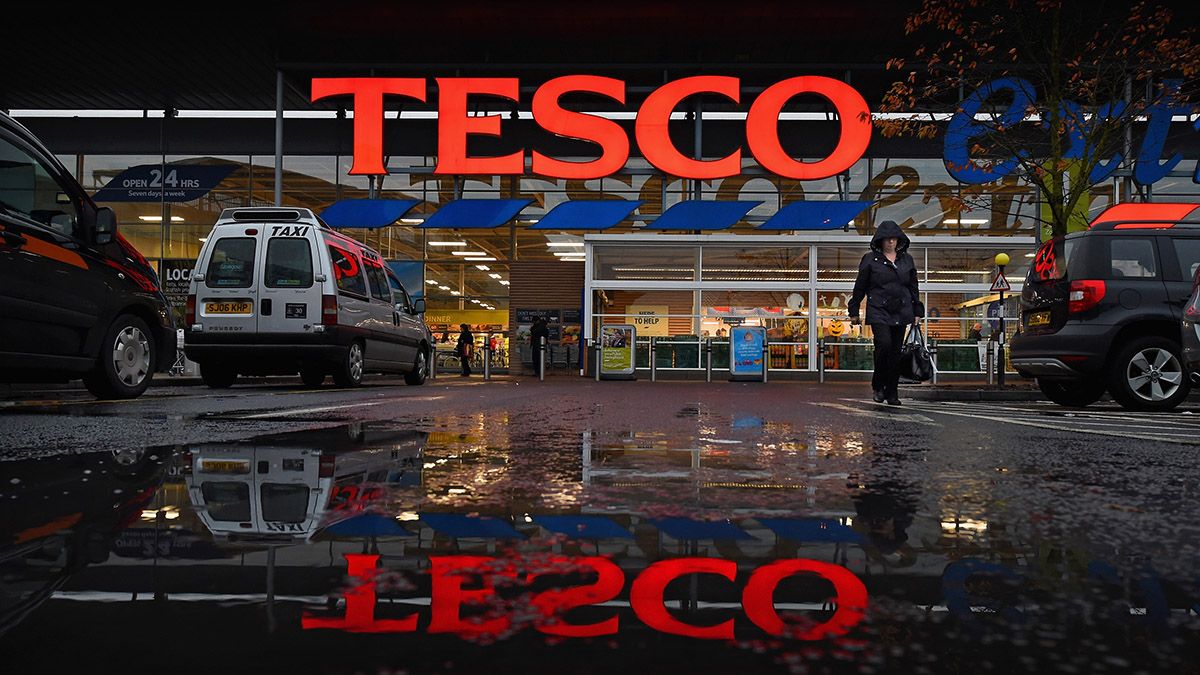
Tesco’s [TSCO] share price began 2022 roughly where it started 2021 – at about the 293p mark. But, with the UK’s leading supermarket chain having increased its market share last year, could its share price soon be on the rise?
Tesco share price recovers from February dip
The Tesco share price spent most of last year recovering from a steep drop in February. Having begun 2021 valued at 293p a share, Tesco saw its share price plummet from about 312p to 224.80p over the course of February. That 28% drop came after shareholders approved the sale of Tesco’s Malaysia and Thailand business for around £7.6bn, with £5bn of the proceeds being paid out to investors via a special dividend, while the rest went into Tesco’s employee pension fund.
Crucially, the fall in the Tesco share price reflected the scaling back of the retailer’s global operation, rather than an underlying issue in its core business. Subsequently, the Tesco share price spent the remainder of 2021 reclaiming lost ground, closing at 293.95p on 4 January 2022, the first trading day of the new year. Now, having recovered from those February losses, could the Tesco share price be set to rise towards the 52-week high of 317.55p that it reached during intraday trading on 27 January last year?
Tesco’s strength underlined by market share, December trading
Recent industry reports underscore Tesco’s strong position. Tesco, which is the UK’s leading supermarket by sales, increased its share of the UK grocery market to 27.7% in the 12 weeks ending 28 November, up from 27% a year earlier, according to data released by Kantar. Tesco consolidated its market-leading position ahead of Sainsbury’s (15.4%), Asda (14%) and Morrisons (10%).
Kantar figures also suggest that Tesco’s pre-Christmas trading numbers held up reasonably well, even though many consumers limited their contact with the outside world in December, as the rapid spread of the omicron variant led the UK government to reintroduce work-from-home advice. The trading data show that Tesco’s grocery sales in the runup to Christmas fell only 0.9% from the year-ago period. By comparison, Sainsbury’s grocery sales fell 4.4% over the same timeframe.
Bosses seek to build on solid half-year performance
Tesco’s half-year numbers showed a 2.6% rise in group sales excluding fuel to £27.3bn, up from £26.7bn the year before. Operating profits also rose by more than 40% to £1.46bn, while profits before tax rose to £1.1bn, up from £551m a year earlier. The results prompted management to raise their full-year forecasts, with retail free cash flow, which fell to £797m in 2020, expected to rise to between £1.4bn to £1.8bn by the end of this financial year. Expectations for adjusted retail operating profits were revised up to between £2.5bn and £2.6bn, though current sales levels are predicted to dip.
Meanwhile, Tesco-owned wholesaler Booker performed well in the first half of the financial year, as sales were boosted by the reopening of restaurants, bars, cinemas and other venues. That said, sales are likely to have slowed in December, as hospitality venues had bookings cancelled due to rising Covid cases. One weak spot for Tesco is its Ireland operation, which has been negatively affected by Brexit.
Tesco emerging from pandemic in good health
The recovery in the Tesco share price, the company’s increased share of the UK grocery market, and the decent pre-Christmas trading figures point to a robust business. The company’s forthcoming update should give a clearer picture of how well the business weathered the omicron storm.
We’ll be keeping a close eye on how the Tesco share price reacts after the company announces its Q3 results at 7am on Thursday 13 January. Check out our Tesco post-results article here.
Disclaimer: CMC Markets is an execution-only service provider. The material (whether or not it states any opinions) is for general information purposes only, and does not take into account your personal circumstances or objectives. Nothing in this material is (or should be considered to be) financial, investment or other advice on which reliance should be placed. No opinion given in the material constitutes a recommendation by CMC Markets or the author that any particular investment, security, transaction or investment strategy is suitable for any specific person. The material has not been prepared in accordance with legal requirements designed to promote the independence of investment research. Although we are not specifically prevented from dealing before providing this material, we do not seek to take advantage of the material prior to its dissemination.



















